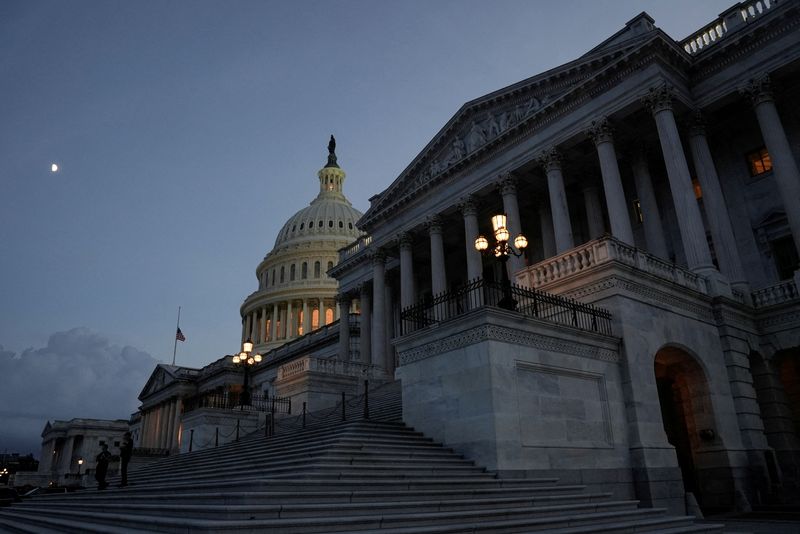WASHINGTON (Reuters) - The U.S. Congress is poised to pass legislation that would tighten the way presidential elections are certified, aiming to prevent a repeat of the chaos that followed Donald Trump's 2020 presidential defeat.
Here are details on the Electoral Count Reform Act, which lawmakers included in a year-end government funding bill:
AIMS TO PREVENT ANOTHER JAN. 6
The bipartisan effort would rewrite the 1887 Electoral Count Act, which lays out the process by which Congress tallies the state-by-state results from a presidential election and formally certifies the winner. Critics say the law is poorly written and open to misinterpretation.
The congressional session, which takes place roughly two months after the election, was largely seen as a formality until Trump supporters stormed the U.S. Capitol on Jan. 6, 2021, in an unsuccessful attempt to prevent lawmakers from certifying Democrat Joe Biden's victory.
Trump and his advisers had cited provisions of the 1887 law as they pressed Republican allies to overturn his loss.
BIPARTISAN SUPPORT
While other election-law reforms have foundered in Congress this year due to Republican opposition, the Electoral Count Reform Act has solid bipartisan support, at least in the Senate.
Crafted by Republican Senator Susan Collins and Democratic Senator Joe Manchin, two moderates, the bill is backed by Republican and Democratic leaders.
In a committee vote in September, the lone "no" vote was cast by Republican Senator Ted Cruz, who led efforts in Congress to block certification on Jan. 6.
The House of Representatives passed a similar bill in September, largely along party lines.
WHAT WOULD IT DO?
The legislation would clarify that vice presidents only play a ceremonial role when Congress tallies the state-by-state election results and certifies the outcome.
Trump had urged his vice president, Mike Pence, to prevent lawmakers from certifying Biden's victory. When Pence said he did not have the authority to do so, Trump denounced him at a rally and his supporters threatened to kill the vice president as they stormed the Capitol.
The legislation also would make it harder for lawmakers to interfere with the process, by requiring approval of one-fifth of the House and Senate to consider a challenge to a state's results.
Current law requires Congress to consider a challenge if only one lawmaker from each chamber raises an objection. That happened on Jan. 6, requiring Congress to consider baseless challenges to Biden's victories in Arizona and Pennsylvania after they hid from the violent, pro-Trump mob that stormed the Capitol.
Congress ultimately rejected those challenges, though eight Senate Republicans and 139 House Republicans supported them.
It also would specify that only a state's governor, or another official designated by law, would be allowed to submit election results.
That would head off Trump's 2020 strategy of recruiting sympathetic state legislators to submit "alternate" results showing he won states that he actually lost. He now faces criminal probes from the U.S. Justice Department and a Georgia prosecutor for that effort.
PRESIDENTIAL TRANSITIONS
The legislation also clarifies how a winning candidate can set up their administration before they take office -- another routine process that was upended after the 2020 election by Trump.

Biden's transition work was held up for several weeks after that election when the head of the U.S. General Services Administration, Emily Murphy, refused to release money to allow him to do so.
The new law says the GSA would release transition money to both candidates if neither has conceded five days after Election Day, but would cut off funds to the loser after the outcome was clear.